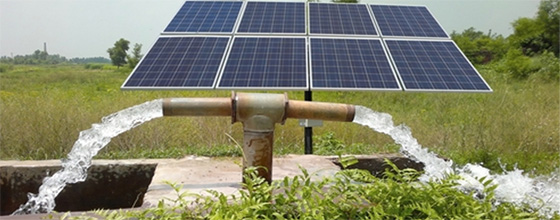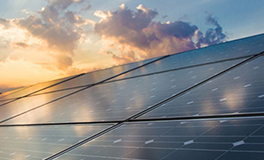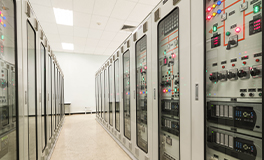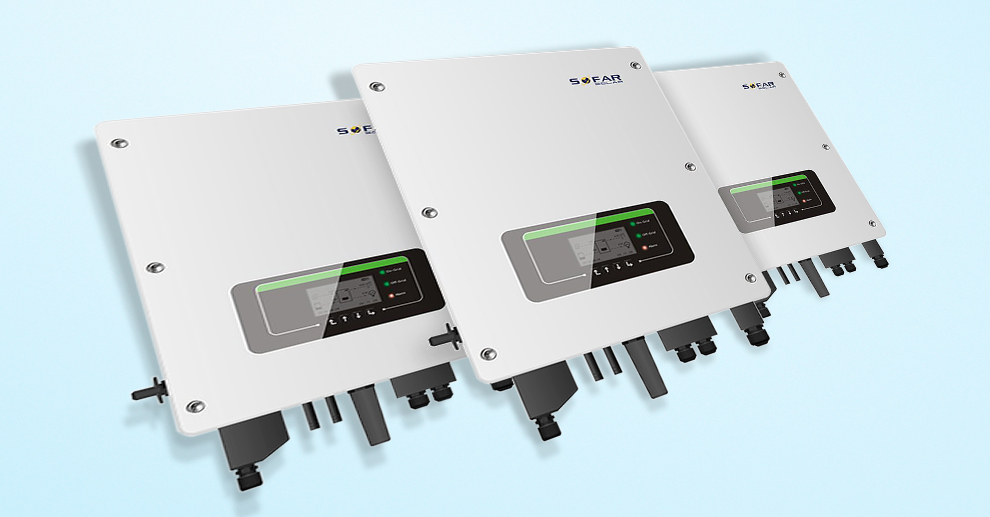With the evolution of inverter technology, the choice of inverter topology for solar system has also changed. Two types of inverters are widely used in solar systems i) String Inverters ii) Central Inverters. Solar system installers, especially on the utility-scale, often are put into the dilemma of choosing between the two.
Diminishing solar module prices clubbed with declining solar subsidies around the world have pushed EPC companies to re-evaluate their procurement value chains. Initially, central inverters were preferred industry-wide due to lower capital costs. However, string inverters have strongly gained traction owing to flexibility, and lower O&M costs.
Through this article, we are trying to outline a comparison between string and central inverters based on their application in a solar power system. The market offers a wide variety of solar inverter for different solar applications. Inverters being a critical component of the solar system; their selection commands significant importance in the designing stage of solar systems.
Basics of Central & String Inverters
As the name suggests, central inverters “ centralize” the power; by combining the output of individual solar arrays that are fed into the central inverter. Central inverters are larger, require significantly longer cabling , and can convert more power per unit.
Central Inverter
Compared to a central inverter, string inverters are distributed across the architecture of solar plants. They are smaller, and convert lesser power compared to a central inverter. In string inverter-based solar system architecture, strings of 10/20 solar panels are terminated at the string inverters.
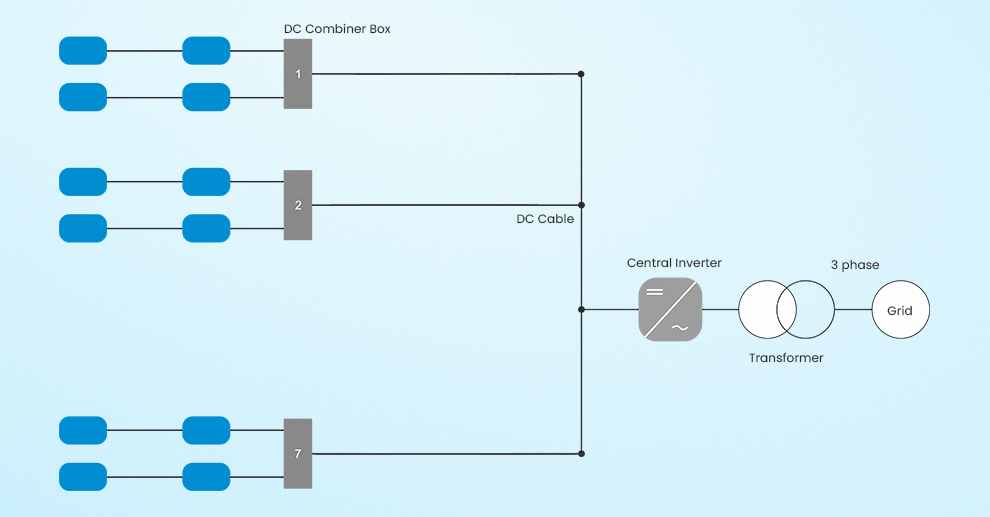
String Inverter
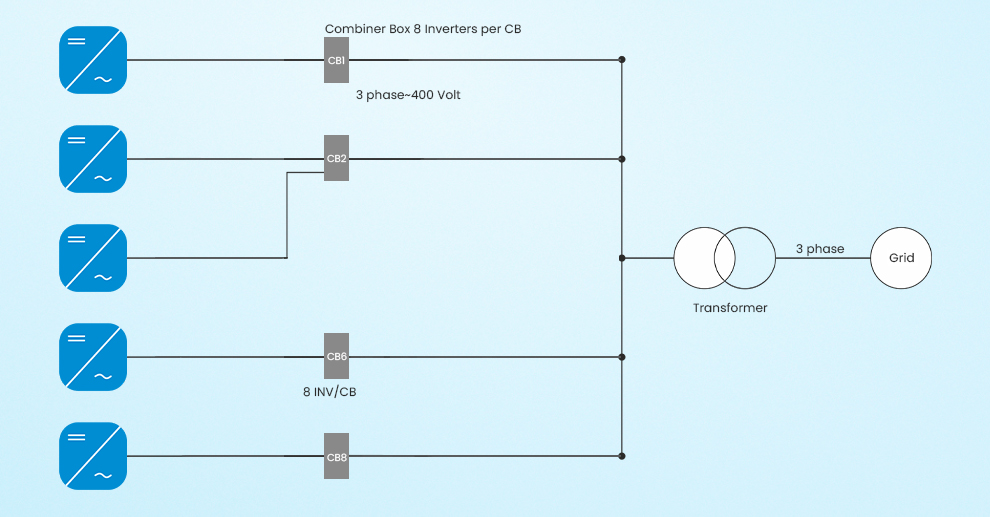
Which One to choose? Central or string
In the case of small-scale solar plants, the decision is straightforward. But, when it comes to large-capacity solar plants, the selection becomes tricky.
Central inverters provide several distinct advantages namely:
i. Suitability for utility-scale ground-mounted solar systems, with consistent power output across arrays.
ii. Lower initial cost outlay, hence cost-effective compared to string inverters.
iii. Straightforward installation as it requires fewer overall component connections than string inverters that are spread across and require duplication of connections.
However, there are also some disadvantages of central inverters:
i. High installation cost, compounded by the requirement of larger counts of high-cost combiners and longer DC wires.
ii. Large footprint due to the complexity of the operation, requiring more maintenance.
iii. Entire plant shutdown in case of failure of or preventive maintenance in central inverter As compared to a central inverter, string inverters offer various advantages like low initial capital cost, simple operation & maintenance, and modularity in design. Also in string inverters, failure or downtime of an individual inverter doesn’t affect the functioning of the entire solar power plant. Thus plant availability is higher in a string inverter as compared to a central inverter, during downtimes. Also, the downtimes can be considerably shorter for string inverters by strategically maintaining stocks, which is straightforward in string inverter as compared to central inverter.
Comparison between Central and String Inverters:
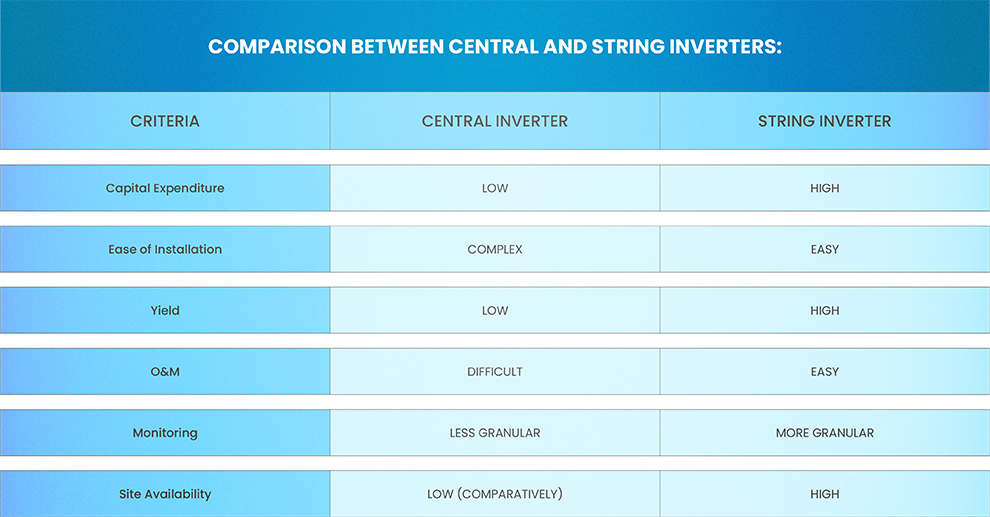
Conclusion:
Selecting inverters is critical as they account for a large portion of the hardware costs in a solar system. Each class of inverter has its strengths and weaknesses. Looking at the operational flexibility offered by string inverters, clubbed with the overall lifetime cost of maintenance; string inverters come across as the most viable choice.
SOFAR SOLAR is a trusted supplier of string inverters for solar based applications in residential, industrial and utility-size segments. We, LUBI Electronics are associated with SOFAR SOLAR as channel partners for India region.
About LUBI Electronics
LUBI Electronics is a leading company in India, exhibiting expertise in the automation, solar, and control panel industry.
Our solar offerings include best-in-class solar modules, solar pumps, solar pump controllers and solar inverters.
For more information on our offerings, please reach out to us at lubi@lubielectronics.com.




